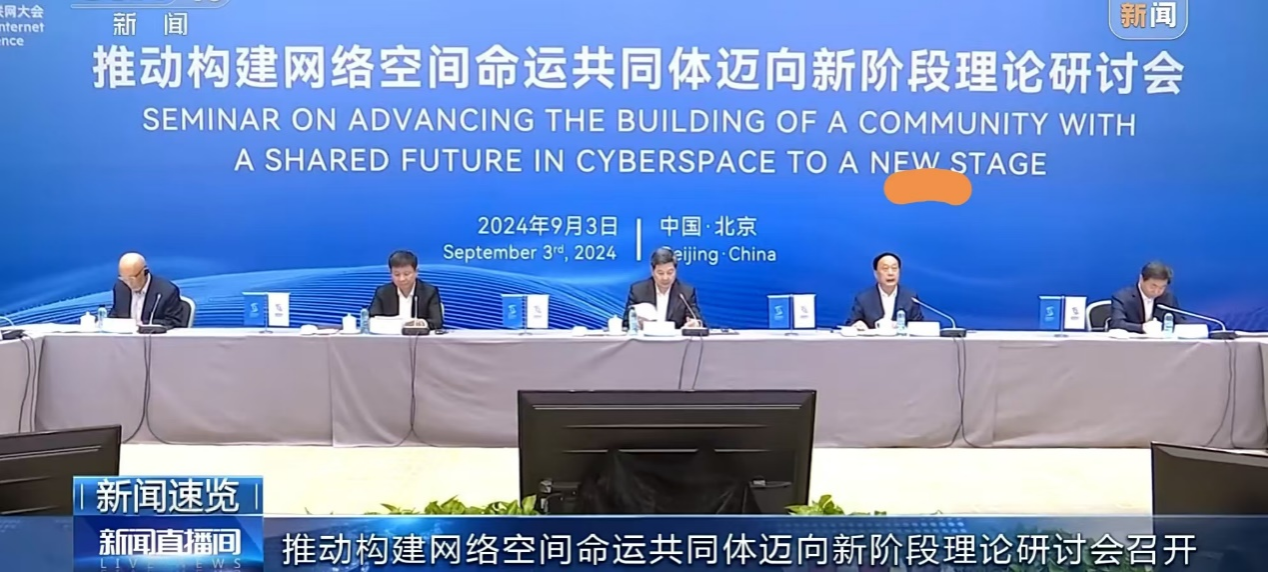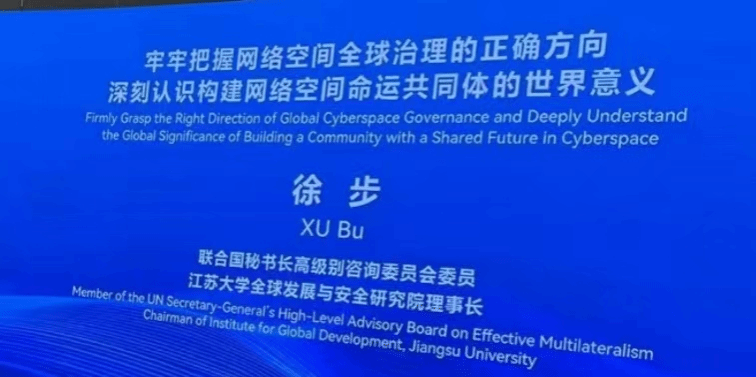On September 3rd, the Seminar on Advancing the Building of a Community with a Shared Future in Cyberspace to a New Stage was held in Beijing as a part of the World Internet Conference. Zhuang Rongwen, Director of the China National Internet Information Office and Chairman of the World Internet Conference, Wang Song, Deputy Director of the China National Internet Information Office, Ren Xianliang, Secretary-General of the World Internet Conference, and other attendees participated in the meeting.

In his speech, Chairman Xu Bu pointed out that the world is undergoing profound technological and industrial transformations, with breakthroughs in technologies such as the internet, big data, and artificial intelligence driving the development of the digital economy and bringing countries' interests closer together. However, at the same time, there are issues in the international cyberspace such as the politicization of the internet, the expansion of security concerns, and the fragmentation of mechanisms. International cooperation in cyberspace and global governance face severe challenges. In September 2024, the United Nations will convene the "Global Future Summit," where digital governance is becoming a focus of international attention. Countries should unite to bridge the digital governance divide, address digital poverty and inequality, support equitable digital transformation, and promote the construction of a cyberspace community with a shared future towards a new stage.

Chairman Xu Bu also pointed out that President Xi Jinping's creative proposal to jointly build a cyberspace community with a shared future caters to the demands of many countries and conforms to the trend of the times, possessing distinct significance both for our time and for the world. Firstly, it outlines a vision for international cooperation in cyberspace. As the development of the internet knows no borders, to leverage, develop, and govern the internet well, countries should strengthen communication, expand consensus, maintain peace and security, promote open cooperation, and establish a good order. Secondly, it promotes fairness and justice in cyberspace. China upholds the respect for network sovereignty and the right of countries to choose their own path of network development, management model, internet public policies, and equal participation in international cyberspace governance. Thirdly, it safeguards the legitimate rights and interests of global southern countries. Cyberspace is a common activity space for mankind, and its future should be jointly controlled by all countries. No country should practice power politics or place its own interests above those of others. Fourthly, it builds bridges for international communication in cyberspace. The internet is an important carrier for disseminating human excellence and promoting positive energy. We should actively engage in the exchange and mutual learning of world cultures through the internet, leverage the advantages of internet communication platforms, jointly promote the prosperous development of network culture, enrich people's spiritual world, and promote human civilization progress. Fifthly, it advances the great process of building a community with a shared future for mankind. As the importance of cyberspace rises prominently, promoting the construction of a cyberspace community with a shared future to a new stage is a common expectation of the international community, a necessary component of improving the global multilateral governance system, and an indispensable part of building a community with a shared future for mankind.
